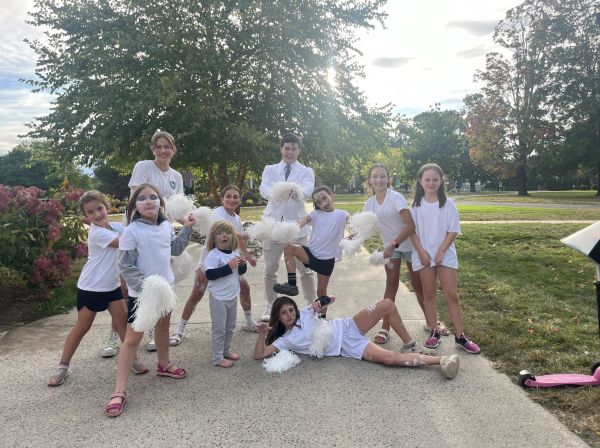New Year, New You?
With 2023 just around the corner, it is time for people to start setting new goals for the new year. A New Year’s resolution is a decision to do or not do something to accomplish a personal goal or break a habit.
The ancient Babylonians are said to be the founders of some of the first New Year’s resolutions. Almost 4,000 years later, people all over the world continue to set goals for themselves for the new year. Notable resolutions range from going to the gym to reading more to minimizing screen time.
Mimi King, senior faculty member, middle school math teacher, and dorm parent in EMV, enjoys setting goals for the new year.
“I do have New Year’s resolutions because they encourage me to make good positive changes for the new years,” she said. “Sometimes it’s [New Year’s resolutions] to walk more sometimes it’s to spend more time with family and friends. The bigger the change the harder it is to keep that one.”
New Year’s resolutions have not impacted junior Emily Hamann’s life, but she thinks they can be beneficial.
“Personally New Year’s resolutions aren’t a huge part of my life,” she said. “But a new year definitely makes me think about my faults from the previous year and the ways I can fix them for the upcoming one,” she added. “It feels like a fresh start where I can try and stay on a good streak for as long as I can.”
According to the New York Times, more than half of all resolutions made end up failing and one third of resolution makers don’t make it past the end of January. The Times offered a technique known as the acronym SMART, originally coined in the journal Management Review in 1981, that can help set goals for the new year.
The acronym stands for specific, measurable, achievable, relevant, and time bound. When setting resolutions, the chances they become more successful are higher when these are taken into consideration.
Other popular resolutions include learning something new, saving more/spending less money, and quitting smoking.
Senior Katherine Kang thinks resolutions can lead to unintentional harm than good for people in the new year.
“I used to be very into making and following them, but now I find them kind of silly,” Katherine, a student council rep from Amherst, Mass., said. “Usually, they’re not very meaningful or realistic, and making them is just one more way to feel bad about yourself when you inevitably can’t stick to them.”
Senior Adam Shatz, from Northampton, Mass., thinks they are irrelevant.
“They never last longer than two months, so why waste the time creating them,” he said.
AP Literature teacher and dorm parent in Mem East, Jessica Rohan, is eager to set goals for the new year, even if they do not last long.
“Oh dear, nope, I do not follow them,” she said. “Every year I get very excited to [make resolutions] because I am all about giving myself chances. I have the greatest, highest hopes, but for some reason I cannot keep the discipline. Maybe this year is my year!”













Alexis • Dec 16, 2022 at 4:41 PM
Love it Crovo!!